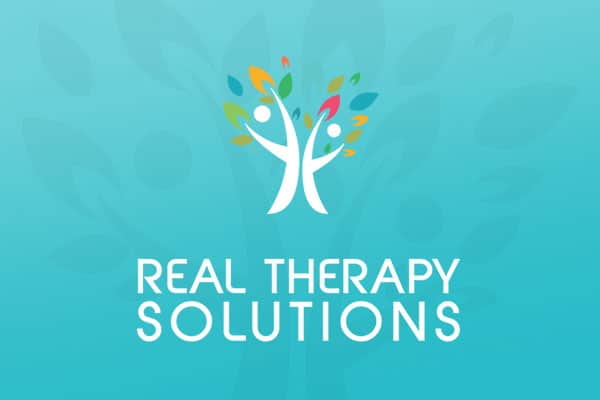Sleep problems in Children with Autism and Developmental Disabilities
I have decided to write this weeks blog on something a little close to home. Sleep problems, after my 6 year old has started waking at night with night time fears. Many parents can recant stories and situations of sleep deprivation, especially in the first 12 months of their child’s life. However for some parents it goes beyond this. Children can experience sleep disturbances for many reasons. Difficulty falling asleep and/or difficulty staying asleep are the most common and most frustrating sleep problems in children. Some are considered “normal” developmental stages that children experience such as fears of the dark and nightmares. For other children there can be other reasons.
40-80% of children with Autism Spectrum Disorder experience sleep problems. They are more likely to display irregular sleep and waking patterns, to stay awake for hours at bedtime or waking hours before the sun rises. These children often tend to sleep less then children without ASD of the same age. The rates of sleep disturbances in children with a developmental disability are similar. For example children with Down Syndrome and more likely to suffer from sleep related breathing disorders that affect their ability to stay asleep, whilst other children with developmental disability display sleep patterns not dissimilar to those with Autism Spectrum disorder mentioned above.
Impact of poor or Reduced sleep
Sleep is important to our physical and psychological health. We know that lack of sleep can have a negative impact on our immune system, memory and learning and of course our behaviour and moods. Any parent who has experienced ongoing sleep deprivation the result of a child who is waking during the night can describe the increased irritability and the poor ability to focus and concentrate in addition to the physical exhaustion. In fact there is clear research linking child sleep problems with maternal stress, depression and poor marital problems.
Common Causes of Sleep problems in Children:
Noise:
Loud noises or too much noise can affect everyone’s sleep, Whilst we are asleep we still continue to register and process sounds on a basic level. Some children will have difficulty sleeping with rhythmic noises whilst most will fall asleep better to the rhythmic sound of a clock ticking. For children that have difficulty falling asleep or staying asleep, creating a constant ambient sound can help mask activity from inside and outside the house, for example the gentle hum of a fan or an air purifier can create the perfect ambient noise to mask the noise of outside of the bedroom.
Television/ Ipad and computer:
Falling asleep with the television on can interrupt sleep. TV sounds are constantly changing in tone, volume, and so forth. Try to avoid letting your child full asleep in front of the television on a regular basis, whether it be in their bedroom or the lounge room. This then becomes what we refer to as a “sleep Prop” that they become unable to fall asleep without. Other sleep props that can cause problems include parental comforting, rocking and patting.
Ipad’s and other tablets are an amazing and beneficial tool for children with Autism and developmental disabilities in so many ways. However we know that using an ipad or laptop before bed can affect the normal release of melatonin (more on that below) basically affecting the body’s ability to recognise it is night time and hence sleep time.
Illness
Obviously any form of illness can disrupt sleep patterns in children (and adults), causing them to wake with aches and pains, blocked noses, coughs and other ailments. These are usually short lived in the case of minor medical complaints and the child sleep patterns return to normal after the illness has gone.
Melatonin
Is a hormone produced by the brain that helps our body get ready for sleep. The levels of melatonin in our body vary in 24 hour cycles, increasing at night. It controls our body clock telling us when we should wind down for sleep and when we should be more energetic and up and moving. So if your melatonin levels are not correct it can cause night time waking and trouble falling asleep. Melatonin tablets are often prescribed for children who are having trouble sleeping. It is important that you discuss this option with your doctor if you think this may be of assistance for your child. Ensure first that all laptops/ ipads etc that cause disruption to regular melatonin levels are not being used before bedtime.
Night Terrors and Nightmares
Common amongst children from 18 months to 6 years of age. Night terrors is when a child might sit or stand up, shake, move around, and cry or scream loudly. They might look like they’re in extreme panic. They are usually inconsolable, largely because they are still in a state of deep sleep. UP to 40% of children experience night terrors. Despite their alarming appearance night terrors are no need for concern. It is important that if your child is experiencing a night terror that you do not wake them, rather wait for them to stop thrashing about and screaming.
Nightmares of the other hand are bad dreams that often cause a child to wake up distressed and afraid explain that it was a bad dream. If your child wakes because of nightmares reassure them that everything is OK and safe, give them some comfort and help them go back to sleep.
Treatment for Sleep problems – working towards a good sleep pattern
Choose an appropriate bedtime: Usually between 7pm or 8pm for young children. However if your child is still awake at 10pm/ 11pm moving them to a 8pm bedtime straight off is unlikely to work. Consider gradually moving their bedtime forward by 10 minutes each few days or each week until you are at a more appropriate bedtime for them. In our experience some children with Autism Spectrum Disorder may always have later bedtime due to their need for less sleep. If your child regularly goes to bed later than 8pm monitor them for signs of sleep deprivation during the day.
Give your child plenty of warning that bedtime is approaching, use a clock to identify to then bedtime six in 15 minutes.
Develop a positive bedtime routine : the last 20 minutes before bed should be left for positive and structured tasks that help the child settle and get ready for bed. Good bedtime routine tasks include reading a book together, going into the bedroom, having a cuddle, brushing teeth and into bed. If you have not had a regular bedtime routine it will take some weeks for your child to get use to this. A good bedtime routine eventually becomes the child “sleep prop”.
For children with ASD or a developmental disability sometimes these bedtime cues are not fully understood, it may be helpful to create concrete visual cues to communicate to your child that bedtime is approaching. Children with ASD can become upset if any part of their bedtime routine is not followed causing difficulties in them getting to sleep.
Encourage your child to sleep in their own bed not to fall asleep in the lounge room or in front of the television:
I know for many parents allowing their child to sleep in their bed or in the parents’ bedroom or even in the lounge room has been the only way they can get a good night’s sleep. As a parent I accept this whole heartedly and do not advocate for parents to stop this and suffer endless nights of waking. However moving towards having your child sleep in their own bed is something that should be considered. Recognise if your child has been sleeping in your bed for some time this will be a gradual process that will require persistence and patience, something that sleep deprived parents may not have too much of.
Create a positive bedroom environment: A night light and/or comforter can help a child who is sacred of the dark or anxious to get to sleep.
If you are concerned about ongoing problems with your child sleep, contact your doctor or a Psychologist to assist with further strategies.








